At EdSurge, we are what we read.
Summertime is here, and we’re not alone in feeling like we can use a much-deserved breather. But breaks can be just as recharging as they are rewarding—and give us an opportunity to return to our favorite timeless hobby: reading.
Whether you’re looking to simply pass those lazy idle days, or battle that proverbial “summer slide” with some intellectual nourishment, here are a collection of books recommended by the EdSurge staff.
EdSurge Picks
Factfulness by Hans Rosling with Ola Rosling and Anna Rosling Rönnlund
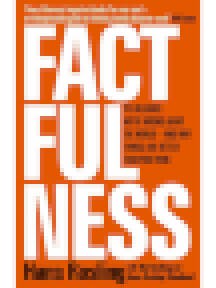
Does it feel like the world is getting worse? That human progress has stalled, perhaps regressed? Binging too much “Black Mirror” and the bickering on social media and cable news may well lead one to believe that’s the case.
Not so, argues Swedish physician and statistician Hans Rosling. Across dozens of statistics on quality of life indicators—including access to water, education, healthcare and income—the world has actually become a much better place. The book doesn’t try to gloss over the many societal ills and problems (especially the environment) that still exist, but rather makes a case for building a “stress-reducing habit of only carrying opinions for which you have strong supporting facts.” At the very least, don’t take what modern civilization has accomplished for granted.
—Tony Wan, Managing Editor
The Confidence Game: Why We Fall for It... Every Time by Maria Konnikova
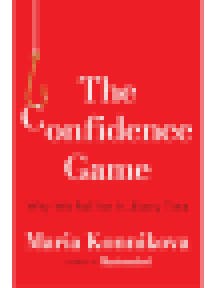
Before she was a celebrated poker champ (and EdSurge podcast guest), Maria Konnikova was a writer of pop psychology who gave us a fascinating glimpse into the sucker in all of us. If you’ve ever wondered why upstanding lawyers and accountants sink millions into psychic schemes or how high-profile scammers like Anna Delvey and Bernie Madoff defy the odds—and common sense—for so long, Konnikova provides an accessible look at the research into our innate, too-trusting natures in a book studded with more big cons than the comic book industry.
Perhaps the most interesting fact-bomb Konnikova drops is also the most humbling: Even absorbing all this knowledge is no fool-proof guard against falling victim yourself—and scammers know it. It’s likely P.T. Barnum never said, “There’s a sucker born every minute,” but spend an hour or two with Konnikova and she’ll show you how to make anyone believe he did.
—Stephen Noonoo, K-12 Editor
Furious Hours: Murder, Fraud, and the Last Trial of Harper Lee by Casey Cep

Casey Cep has pulled off an amazing coup: She’s woven together a taut murder mystery with a poignant tale of the consequences of success won too early. We all know the power of Harper Lee’s “To Kill a Mockingbird.” But why did this talented young writer never publish another book?
I didn’t know much about Lee’s life or the close relationship she had with Truman Capote and the contributions she made to “In Cold Blood.” In “Furious Hours,” Cep writes the book that Lee spent a decade trying to create, and then uses that story to tell the tale of Lee herself.
Cep’s powerfully descriptive passages gave me chills. One favorite: “So began the inauspicious age of Wallace in Alabama politics. These were dark, demersal years, when white voters were pandered to by politicians at every level of government, promised power they’d never had at the expense of African American they were assured never would.”
“Furious Hours” offers a mesmerizing tale twisted by racism, privilege and the burden of success.
—Betsy Corcoran, EdSurge CEO
The Unlikely Adventures of the Shergill Sisters: A Novel by Balli Kaur Jaswal

This is a travel narrative of Indian immigrants going back to their country of origin and discovering their roots. The three sisters travel to the holy city of Amritsar (in Northern India) to scatter their mothers’ ashes. The unexpected adventures and experiences they have during this journey are funny, somber and definitely real (being women).
This book gives an insight into the customs of the Sikh community in a light-hearted, yet factual manner. The story flows and the narrative gives you a chance to visualize what is happening—from the scenery to the family squabbles.
A great beach-read (or listen via Audible) for this summer!
—Arati Nagaraj, Director, Learning Events
Life Is So Good by George Dawson and Richard Glaubman

This memoir was written by a 103-year old African American man who only learned to read when he was 98. It’s an incredible story about what it was like to grow up black in America when segregation was in effect, about what it’s like to not be able to read and why somebody might grow up that way. One can’t help but be inspired by Mr. Dawson’s resilience, positivity and curiosity about the world. I sure hope that when I’m 98 (and I fully expect to live that long) I will be learning something new and doing something that inspires others.
—Alice Myerhoff, Vice President of Sales
A Beautiful Day in the Neighborhood: The Poetry of Mister Rogers by Fred Rogers (illustrations by Luke Flowers)

Did Netflix’s recent documentary on Mister Rogers make you, in the words of my 3-year-old, “want to see that nice man again”? Then pick up a copy of Fred Rogers’ songs and poems.
Start your summer with “I’m Interested in Things” (“I wish I could look inside the telephone. I hear the voice, but I wish that I could see. I’m interested in things like the telephone. / I’m interested in lots and lots of things”). Get real with “What Do You Do with the Mad That You Feel?” (“I can stop when I want to / Can stop when I wish / I can stop, stop, stop anytime. And what a good feeling to feel like this / And know that the feeling is really mine”). Then get yourself ready for fall again with “You’ve Got to Do It” (“You can make-believe it happens / Or pretend that something’s true. / You can wish or hope or contemplate a thing you’d like to do. / But until you start to do it, you will never see it through. / ’Cause the make-believe pretending just won’t do it for you”).
Mister Rogers will remind you what it means to be an educator, and what it means to be a person in this world.
—Aneesa Davenport, Senior Marketing Manager
Becoming by Michelle Obama
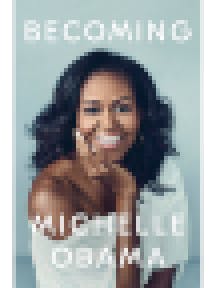
I rarely find a book I can’t put down. This is one of them.
Michelle’s writing style is fluid, descriptive, and detailed. It’s an uplifting story that will leave you rooting for her as she navigates through life’s obstacles with determination and an innate confidence. You come away with an “I can do it” attitude.
—Barbara Lawson, Executive Assistant to the CEO
Columbine by Dave Cullen

I’ve never read 500 pages so quickly (only maybe when reading Cormac McCarthy). And I’ve never been so immersed in a book’s footnotes, appreciating the reporter’s obsession with acknowledging when information came from his own eyes, first-hand accounts and from other resources.
Now over 20 years since a day still referenced in conversations around school safety, gun ownership and mental health resources, the book remains essential reading.
—Wade Tyler Millward, Business Reporter
Between the World and Me by Ta-Nehisi Coates

Written in the form of a letter to his son, Coates addresses America’s history and the idea of race. The point of view is what’s riveting here as he delves into his own experiences and concerns of bringing up his son in this world. The writing is complex and it’s not something that can be easily read in a day. But it is a book that forces you into a uniquely different perspective.
“This is your country, this is your world, this is your body,” writes Coates, “and you must find some way to live within all of it.”
—Martha Karmali, Social Media Consultant
Americanah by Chimamanda Ngozi Adichie
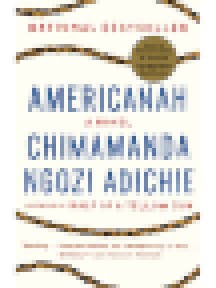
When you want to dive into an issue you often seek out an insider’s perspective. But sometimes an outsider can be as equally insightful. In “Americanah,” the protagonist Ifemelu offers such observations on race in America from the lens of a black immigrant.
As teenagers in Nigeria, Ifemelu and Obinze fall in love. She moves to the U.S. where she pursues undergraduate and advanced degrees. Her blog shares her thoughts as an African-not-American woman navigating the racialized social structures of the U.S. Obinze emigrates briefly to the U.K. and returns to Lagos to become a wealthy real estate developer. They lose touch early in their separation. Years later, Ifemelu yearns for Nigeria and for Obinze. After all the experiences they’ve had apart, they face the question together: Can you ever really return home?
—Michael Sano, Community Manager
Good Talk: A Memoir in Conversations by Mira Jacob
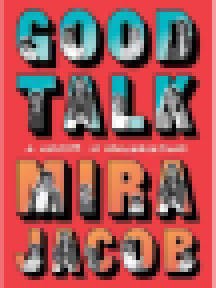
If your experience is anything like mine, you might have found yourself in the middle of some tough conversations lately. From the quotidian to the profound, life is full of them; whether I’m navigating my 5-year-old’s existential questions (that I definitely don’t know how to answer) or the awkwardness of holiday dinners with family firmly rooted on the other side of the political aisle, I could use some guidance.
Enter Mira Jacob (author of 2014’s “The Sleepwalker’s Guide to Dancing”) and her new graphic novel, “Good Talk: A Memoir in Conversations.”
Jacob wrestles with heavy topics, from workplace discrimination to her struggle to find common ground with her conservative in-laws and immigrant parents, all while illuminating the contours of race and racism in America with both sincerity and levity. The book, chock full of eye-catching illustrations, was inspired by her own young son’s questions about Michael Jackson and race (and whether he, half-Indian, half-Jewish, could also “turn white”). It serves as a poignant handbook for confronting these issues in our own lives and shines a spotlight on the humor and heartbreak of how we confront race and racism in 2019.
—Liana Gamber-Thompson, Digital Project and Operations Manager
Kitchen Confidential by Anthony Bourdain

I must admit that Anthony Bourdain’s untimely death was the driving force for me to finally read his much-loved authorial debut, so the experience was bittersweet. This is a thoughtful, honest, and sometimes frenzied recollection of his transformation from a fish fry in Cape Cod to executive chef of his own restaurant in New York.
Bourdain gives us a rare glimpse at the sex, drug, and ricotta-filled world of the culinary industry, and manages to make it feel like rock and roll. His attention to detail sometimes reads like a racy “how-to” and yet I’ve never been more certain that I could not be a chef, let alone a cook.
Any fans of his TV shows will find “Kitchen Confidential” to be the perfect complement. An anachronistic behind-the-scenes that answers the “why” behind Bourdain’s pursuit of culinary adventure.
—Kris Hattori, Director of Sponsored Content
The Rules Do Not Apply: A Memoir by Ariel Levy
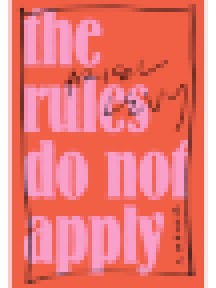
I remember reading “Thanksgiving in Mongolia” when it was published in the New Yorker back in 2013. It is a gut-wrenching first-person tale of tragedy, vulnerability and loss written by staff writer Ariel Levy. So when I learned recently that Levy had adapted that story—the lowest, loneliest moments of her life—into a memoir, I immediately went to check it out from my local library (a great institution—highly recommend) and, for the first time in years, devoured a book in one weekend.
The events that Levy recounts in vivid detail in “Thanksgiving in Mongolia” serve as the climax of her memoir, but it is what leads up to and follows that climax that stand out the most. Levy describes how, from a very young age, she had carefully curated what her life would be like, who she would become and what she would do. For a long time, all was going according to plan. But over one Thanksgiving in Mongolia, when she was five months pregnant, how quickly all her plans unraveled.
Several years out from the tragedy that befell her, Levy writes with the kind of honesty and clarity that every writer (myself included) aspires to. It’s one of those books that is simultaneously hard to read and hard to put down, but every word is worth it.
—Emily Tate, K-12 Reporter
Do Not Say We Have Nothing by Madeleine Thien
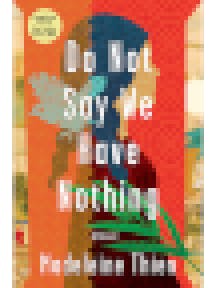
How do you hold onto your true self under a repressive government? This novel offers a sweeping history of modern China, following a family’s story over generations—through the Cultural Revolution, the violent crackdown at Tiananmen Square, and up to today.
Lives are at stake during this lyrically drawn tale of political upheaval, but also at issue is whether a group of professors and students at the Shanghai Conservatory can complete their symphonies and leave a record of their time. And throughout, a mysterious text called “The Book of Records” is passed around, lost and reclaimed, amended and embellished, so that it is no longer clear what is fact and what is fiction. Author Madelein Thien, born in Canada to parents of Chinese descent, asks how much of this history can be reclaimed.
—Jeff Young, Higher Education Editor
Dear America: Notes of an Undocumented Citizen by Jose Antonio Vargas
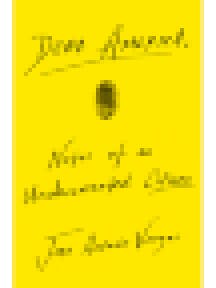
In 2011, journalist Jose Antonio Vargas broke his own story, revealing his undocumented status in a cover story for the New York Times Magazine. Last year, Vargas published a memoir that expanded upon the original article.
Vargas writes as the newspaper writer that he was trained to be, with efficiency and a great disdain for adjectives. He anticipates readers’ questions, letting the mundane details of his life—how he obtained a driver’s license, that he pays taxes, how he secures employment, how he was able to get a college scholarship—paint a portrait of life in America that is at once enormously particular to a Pulitzer Prize-winning reporter, and wholly representative of a generation of Americans with a shared set of fears and strategies for overcoming the circumstances of their birth.
I live in the California city where Vargas grew up. In the fall, a new elementary school bearing Jose Antonio Vargas’ name will open in our community. It is a reminder of the power and kindness that is another side of America, a flip-side of the byzantine processes for living as both insider and outsider. That’s the America that Vargas also reveals in his book.
—Rachel Burstein, Research Associate
The Lost City of the Monkey God by Douglas Preston
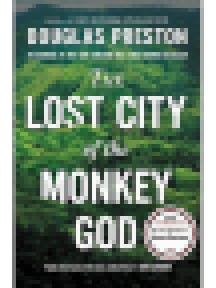
After centuries of rumors of a “lost city” deep within the jungle of northeastern Honduras, scientists in 2012 were able to map the dense rainforest floor to reveal unmistakable evidence of the remains of a Pre-Columbian civilization. This discovery leads to an expedition deep into the heart of La Mosquitia (the famed Mosquito Coast) where scientists and archeologists hope to uncover the mystery of the lost city.
Part adventure, part history, the book moves from stories of Indiana Jones types whose attempts to find the fabled “White City” led to death, to the history of the indigenous people of the region and finally to the survival of a deadly parasitic disease deep within the jungle.
Stymied by endless rain and impenetrable mud, poisonous snakes, unrelenting insects, and the sheer density of the rainforest, the expedition is barely able to scratch the surface of the ancient city. Although we don’t come away with all the answers, I did put down this book with satisfaction and the reassurance that the earth still holds great secrets to uncover and mysteries to be solved.
—Megan McMahon, K-12 Events Manager
If Beale Street Could Talk by James Baldwin
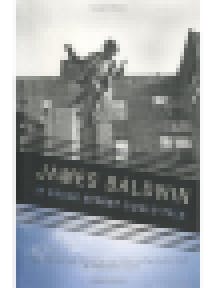
In simple terms, this is a love story. And love does ultimately win here, if only a small victory. Yet the narrative also betrays Baldwin’s lifelong, frustrated love affair with America, as he forces us to take a hard look in the mirror and evaluate our prejudices. It is a beautiful, blistering appraisal of America’s (in)ability to cultivate a racially and economically just society, laid out in prose that both rends and mends the heart in turns.
Insightful, wry, comical and accusatory—Baldwin’s social commentary demands a reading (and perhaps a viewing).
—Sam Peterson, Digital Content Project Manager


